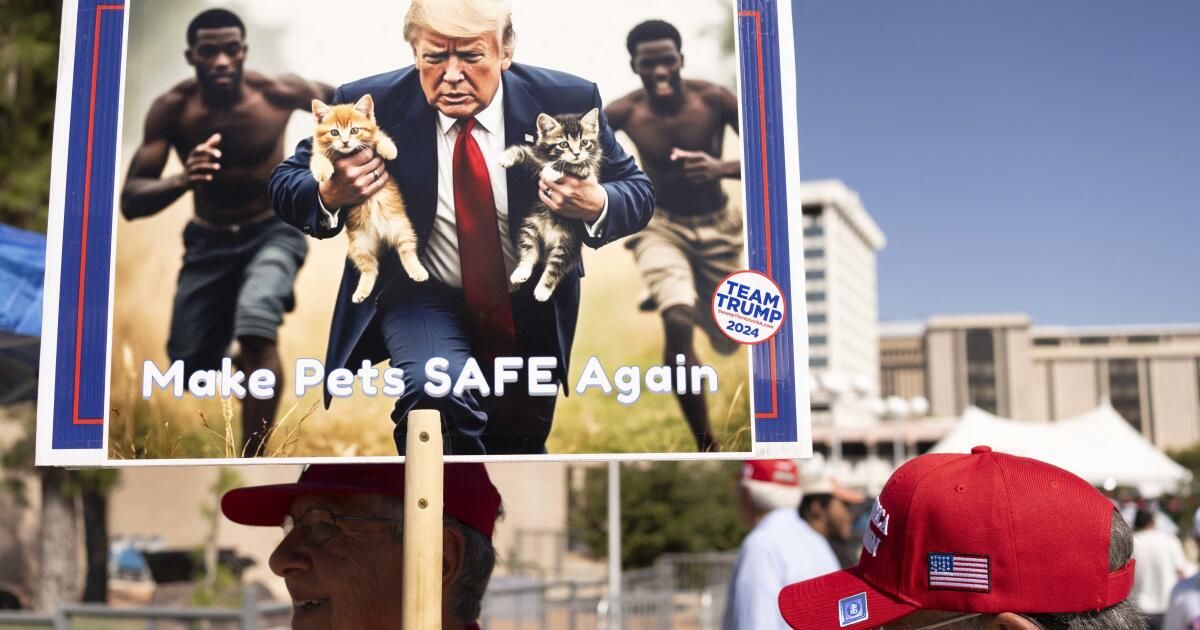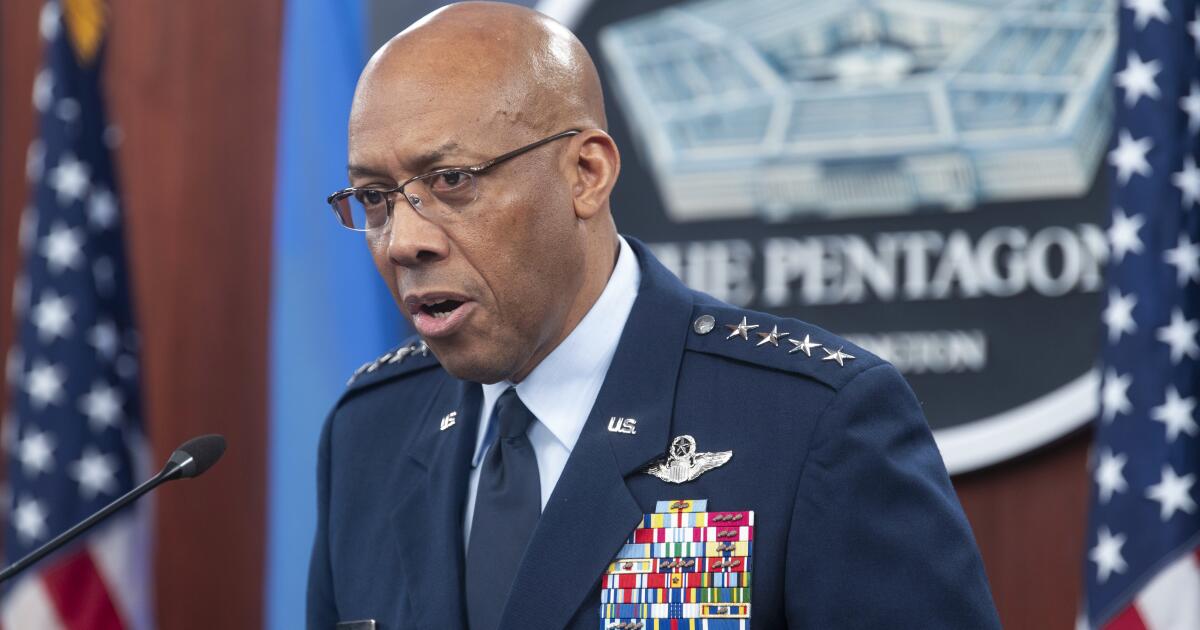To the editor: Now that the issue of Haitian immigrants has become a recurring theme in the presidential debate, there is another connection between that country and Donald Trump that seems relevant right now. (“Trump’s comments on Haitian immigrants create a stir in Florida,” Sept. 13)
On January 11, 2018, then-President Trump met at the White House with a bipartisan group of senators. The topic was immigration. At one point during the meeting, Trump called Haiti and African countries “shithole countries.” The next day, he denied having used those words. No senator in the room at that meeting denied that the president had used those words.
Of course, beneath Trump's invective lies a legitimate debate about immigration, but of all the rhetorical options he could have used, the president chose language that invited acrimony. I see no justifiable advantage in picking fights with other countries.
More broadly, this suggests that he misused the political capital that comes with the U.S. presidency, which belongs to American citizens. With his careless comments, the president depleted that account and diminished our standing in the world.
We should expect, and can get, better leadership than this.
Paul Skophammer, Malibu
..
To the editor: The Haitians in Springfield, Ohio, are not here illegally. They have temporary protected status. They don’t eat people’s pets. They are working. Surely Trump and vice presidential candidate Sen. JD Vance (R-Ohio) know that.
Haitians are refugees, tired, hungry and poor, just as the Statue of Liberty says. If you practice Christianity, you must believe that these people who came here in search of a home are our brothers and sisters and that we must protect them.
By smearing them in such a vicious manner, and knowing that his supporters will believe any crazy lie he tells them, Trump and Vance are putting these people in danger. If we give Trump back the power of the presidency, he will be able to harm these refugees who have come here seeking protection, and he would not be held legally accountable if he breaks the law in doing so, due to the U.S. Supreme Court's immunity ruling.
Alba Farfaglia, San Clemente












